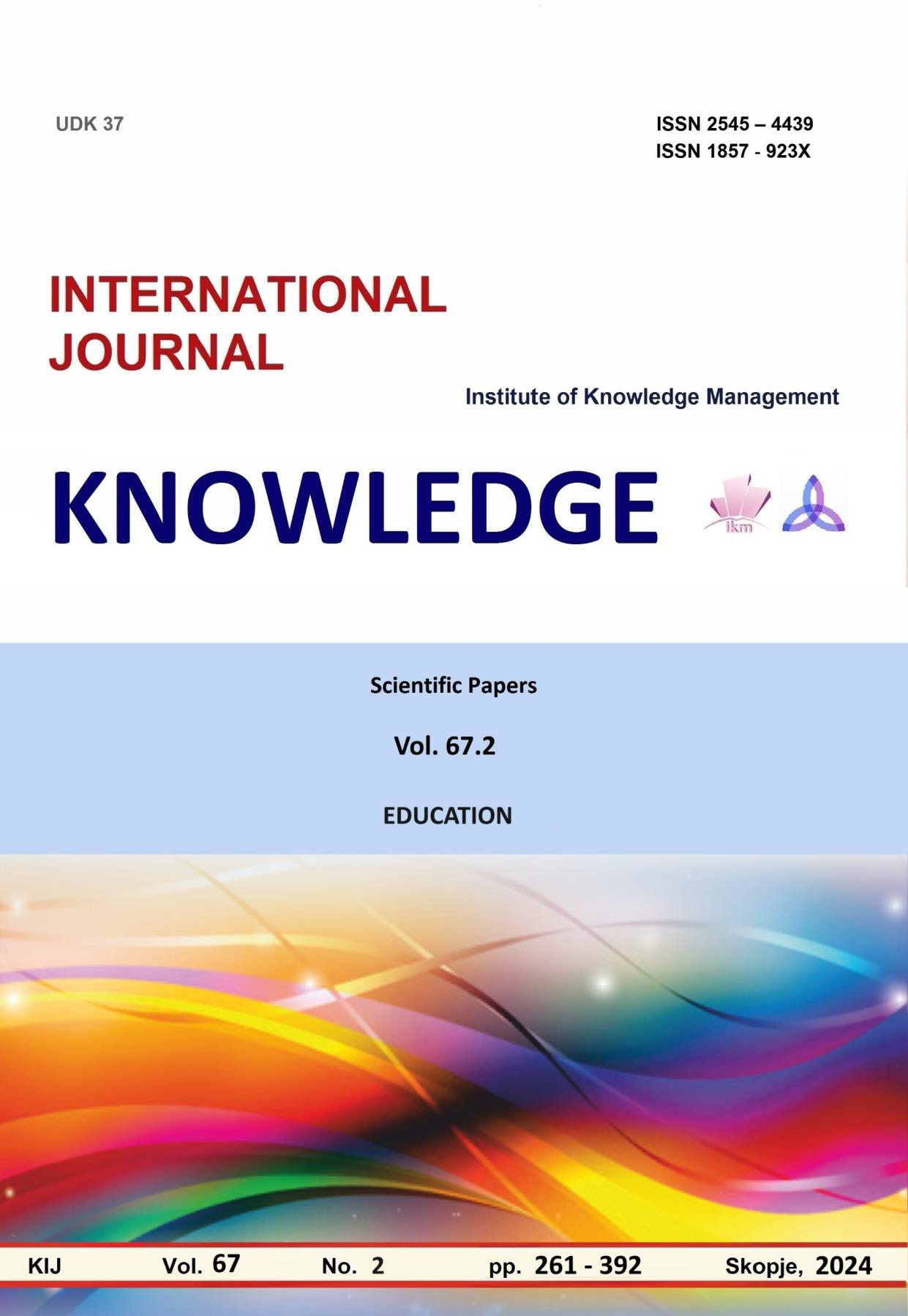ПСИХОДРАМАТА КАТО МЕТОД ЗА РАЗВИТИЕ НА ЕМОЦИОНАЛНАТА ИНТЕЛИГЕНТНОСТ В ПЕДАГОГИЧЕСКАТА АНИМАЦИЯ: СТРУКТУРА И ПРИЛОЖЕНИЕ НА АВТОРСКИ ПЕДАГОГИЧЕСКИ МОДЕЛ ЗА УЧЕНИЦИ В СРЕДНА ДЕТСКА ВЪЗРАСТ
PSYCHODRAMA AS A METHOD FOR DEVELOPING EMOTIONAL INTELLIGENCE IN PEDAGOGICAL ANIMATION: STRUCTURE AND APPLICATION OF AN AUTHORIAL PEDAGOGICAL MODEL FOR MIDDLE CHILDHOOD STUDENTS
Author(s): Avi AbnerSubject(s): Social Sciences, Education, Educational Psychology
Published by: Scientific Institute of Management and Knowledge
Keywords: Pedagogical animation;Psychodrama;Social-emotional development;Emotional regulation;Educational methodology
Summary/Abstract: The application of psychodrama in pedagogical animation as an innovative approach for enhancing emotional intelligence in middle childhood presents a significant advancement in educational practice. Emotional intelligence, which encompasses the recognition, expression, and regulation of emotions, is fundamental to both social adaptation and academic achievement. Conventional educational frameworks, however, often lack structured approaches to support the development of these skills, which are critical to holistic child growth. To address this gap, Dr. Avi Abner has developed an authorial pedagogical model that integrates psychodramatic techniques with pedagogical animation, providing a structured yet flexible framework to nurture emotional awareness, empathy, and social skills in a supportive learning environment. Through thoughtfully designed role-play scenarios, interactive group activities, and staged social situations, children are encouraged to explore their emotions and improve self-regulation, social awareness, and empathy. The study highlights the efficacy of psychodrama in fostering social competence and emotional regulation, focusing particularly on its benefits during middle childhood—a crucial phase for emotional and social development. This model offers educators a replicable and adaptable framework, providing practical tools for embedding emotional intelligence training within the curriculum in a manner that complements cognitive learning. The findings suggest that integrating psychodrama into educational settings not only addresses children’s emotional needs but also facilitates a balanced development, equipping them with essential skills for both academic and social success.
Journal: Knowledge - International Journal
- Issue Year: 67/2024
- Issue No: 2
- Page Range: 355-360
- Page Count: 6
- Language: Bulgarian

